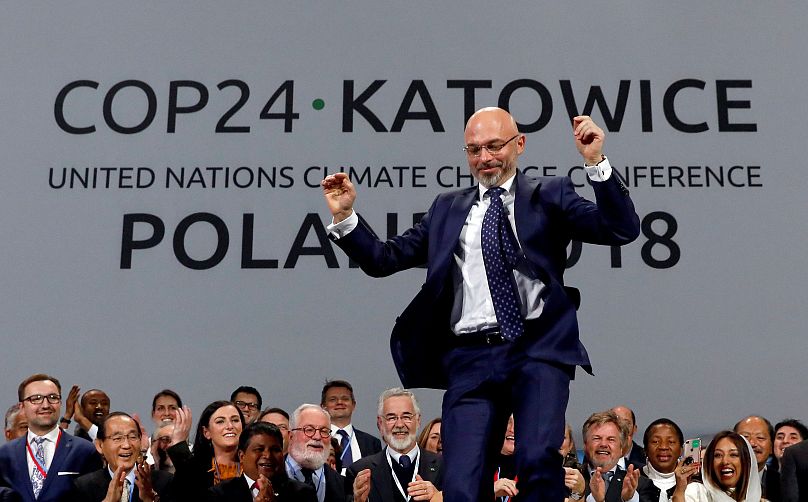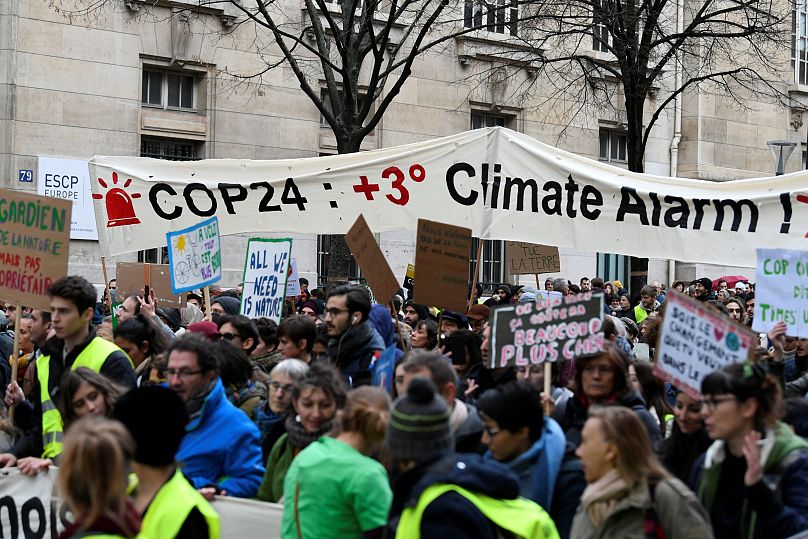Nearly 200 countries have signed up to a 156-page rulebook for implementing the Paris Agreement on climate change. But what is the rulebook, why is it necessary and why are some already criticising it?
Nearly 200 countries signed up on Saturday to a 156-page rulebook for implementing the landmark Paris Agreement on climate change, ending some two weeks of negotiations fraught with political divisions.
 ADVERTISEMENT
ADVERTISEMENT
 ADVERTISEMENT
ADVERTISEMENT
But what is the rulebook, why is it necessary and why are some already criticising it?
Why do we need a rulebook?
The rulebook has been described by the United Nations as a “robust set of guidelines” for implementing the Paris Climate Change Agreement.
The landmark 2015 deal aims to limit global temperature rises to "well below" two degrees Celsius.
The UN says the new guidelines “promote trust among nations that all countries are playing their part in addressing the challenge of climate change”.
“It will promote international cooperation and encourage greater ambition,” it added in a statement.
Where and how was the deal reached?
The deal on the rulebook was reached at the COP24 climate change conference in the Polish city of Katowice, where officials from around the world engaged in two weeks of negotiations.
The talks hit several stumbling blocks and went into overtime on Saturday.
"It is not easy to find agreement on a deal so specific and technical”, chairman of the talks, Michal Kurtyka, said.
A consensus was finally reached when ministers managed to break a deadlock between Brazil and other countries over the accounting rules for the monitoring of carbon credits, deferring much of the discussion to next year.
What does the rulebook say?
The 256-page common rulebook, known as the Katowice Climate Change Package, is split into thematic sections.
It details how countries should monitor and report their greenhouse gas emissions and the efforts they're taking to reduce them, and how they will update their emissions plans.
Poor countries also secured assurances on getting financial support to help them cut emissions, adapt to changes and pay for damages.
Guidelines in the package also explain:
How to conduct the “Global Stocktake” of the effectiveness of climate action in 2023
The process for establishing new targets on finance from 2025 onwards to support developing countries
How to assess progress on the development and transfer of technology
What was left out of the rulebook?
The final deal failed to include provisions on a global carbon market mechanism, pending further talks, amid the disagreements between Brazil and other countries.
Article 6 of the Paris Agreement states that countries should agree to rules to ensure they do not double count emissions reductions — this is when one country is allowed to pay another to lower emissions but counts those lower emissions towards its own emissions cut targets.
A way to avoid this is to create a mechanism which would ensure that emissions reductions generated in one place cannot be counted twice.
“From the beginning of the COP, it very quickly became clear that this was one area that still required much work and that the details to operationalize this part of the Paris Agreement had not yet been sufficiently explored”, UN Climate Chief Patricia Espinosa said in a statement.
“Unfortunately, in the end, the differences could not be overcome”.
Were the delegates happy with the deal?
COP24 President Kurtyka told delegates they should “feel proud” of the agreement.
“Through this package you have made a thousand little steps forward together,” he said.
After the deal was reached, ministers joined Kurtyka on stage, hugging and laughing.
Several representatives said they were not entirely happy with the rulebook, but that it gave them something to build on.
Why are some criticising the rulebook?
Some countries and environmental groups say the COP24 rulebook does not provide a sufficient response to the impacts of climate change.
“COP24 failed to deliver a clear commitment to strengthen all countries’ climate pledges by 2020,” Climate Action Network (CAN) Europe said in a statement.
“Governments have again delayed adequate action to avoid catastrophic climate breakdown. The EU needs to push ahead and lead by example, by providing more support to poor countries and increasing its climate pledge before the UN Secretary-General Summit in September 2019,” the group’s director, Wendel Trio, said.
Poorer nations also wanted more clarity on how an already agreed $100 billion (€88 billion) a year of climate finance by 2020 will be provided, and on how that will be built on in the future.
A statement by UN Secretary-General António Guterres stressed the need for more work.
"From now on, my five priorities will be: ambition, ambition, ambition, ambition and ambition," it said.












